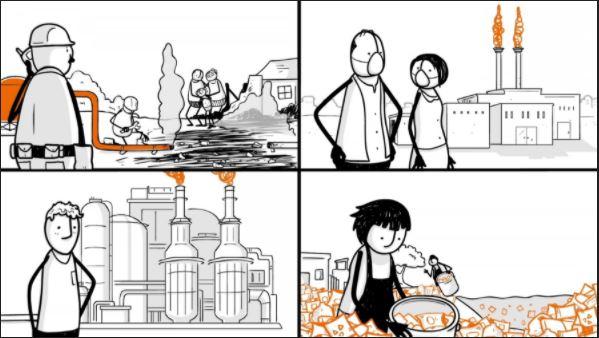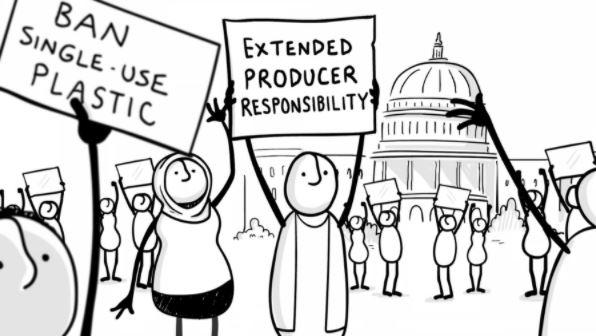September 05 2020 at 08:00PM
PMI-SFBAC Sustainability Event Recap: The Story of Plastic
Event Overview
This past #plasticfreejuly, the Project Management Institute SF Bay Area Chapter held a post screening discussion session after watching The Story of Plastic. Director Deia Schlosberg’s exposé on plastic pollution emphasized how devastating this issue is not just to marine life and the environment, but to all nations and its inhabitants across the globe. In addition, Schlosberg aims to create awareness and understanding on how to act and inspire other people to make a change.
80 people signed up to watch the film. Of those, over 50 attendees joined the online discussion to share their thoughts on the documentary. They were divided into small groups for breakout sessions and then reconvened to report discussion takeaways back to the entire group. Themes such as climate change, corporate responsibility, and the future of our planet were highlighted, leaving participants enthralled and enthused throughout the event.
Film Recap
Continuous production of disposable plastics for packaging, human negligence, inadequate disposal management systems, and illegal dumping are major contributors to this crisis. To paraphrase one of the “heroes” from the film Tiza Mafira, plastic simply cannot be managed at the current rate of production.

According to the United Nations, there will be more plastic in the ocean than there are fishes in the sea (!!!) by weight. And it will only grow exponentially if we do not put a stop to the plastics industry...quick, fast, and in a hurry.
Plastics start from natural gas and oil mined underground. The process of creating plastic releases toxic emissions near the plant, leading to illness such as asthma, cancer, and other conditions in the surrounding communities. The life cycle for the majority of plastic ends in landfills or as litter; roughly 9% is recycled, but most of the plastic that we use in our daily lives finds itself in some body of water or even animals. Plastic pollution threatens both land and marine ecosystems, affecting all organisms within it regardless of the shape and size.
How can you support the #breakfreefromplastic movement?
- Support policy change for Extended Producer Responsibility, which makes plastics producers take ownership of the plastic lifecycle. Support policy change to end fossil fuel subsidies.
- Avoid buying products made of plastics, especially single-use items.
- Encourage companies and your community to adopt zero waste initiatives.
- Ensure proper segregation of waste (remember that compostable waste may be converted into fertilizer)
- Educate our youth and support clean-up projects in your local community
- Join plastic pollution awareness campaigns
Watching this film and leading one of the breakout rooms for the discussion session was an enlightening experience. It was eye-opening how the film emphasizes the problem lies not only in waste management or lack of awareness, but in the excess plastic production. It is disheartening to see that communities of color and developing nations are adversely affected by plastic pollution. To make matters worse, many individuals in these areas are unable to drink the water in their own wells, and are forced to drink from single-use plastic bottles.
No matter how much effort we put into recycling and reusing plastic, we cannot simply request large companies to stop producing them and think the problem is resolved. Although it is commendable to see citizens take responsibility for proper waste management, plastic is a global obstacle that will continue to affect the plants, animals and our future generations.
I firmly believe that if each person across the world makes even one minor change as they #breakfreefromplastic, it will deliver a major impact. How I will lean in and support the movement is by avoiding the single-use plastic bottles wherever possible. Albeit a small step, it is a step in the right direction. We don’t have to be superheroes to make a difference!

So I ask you...How will you support the fight against plastic?
Note from Director of Sustainability Ina Acuña: Thank you to all the Story of Plastic event attendees for your participation and support. Your donations will be used to build a community garden plot for a disadvantaged family at the Minnie and Love Ward Recreation Center in spring 2021.



